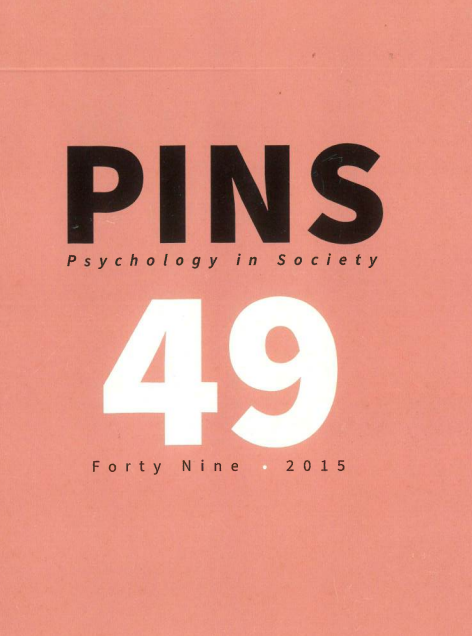Gender, social cohesion and everyday struggles in South Africa
DOI:
https://doi.org/10.17159/2309-8708/2015/n49a6Keywords:
cohesion, gender, citizenship, democracy, everyday strugglesAbstract
Since the advent of democracy in South Africa, far-reaching changes have taken place in many areas of society. While many positive changes have taken place in the new dispensation; however, the promise of democracy has not been fully met. The hope for collectivity and trust in the government system seems to be an ideal to which many are still striving. Using gender as a unit of analysis, this paper interrogates the complexities of democracy and the ideation of social cohesion in a country that contends with perpetual everyday struggles. I will also draw briefly from a research project that I conducted to highlight how women make meaning of their newly found ‘freedom’ and the ways in which they wrestle with perpetual challenges that so many of them continue to face.
Downloads
Downloads
Published
How to Cite
Issue
Section
License
This journal is an open access journal, and the authors' and journal should be properly acknowledged, when works are cited.
Authors may use the publishers version for teaching purposes, in books, theses, dissertations, conferences and conference papers.
A copy of the authors’ publishers version may also be hosted on the following websites:
- Non-commercial personal homepage or blog.
- Institutional webpage.
- Authors Institutional Repository.
The following notice should accompany such a posting on the website: “This is an electronic version of an article published in PINS, Volume XXX, number XXX, pages XXX–XXX”, DOI. Authors should also supply a hyperlink to the original paper or indicate where the original paper (http://www.journals.ac.za/index.php/pins) may be found.
Authors publishers version, affiliated with the Stellenbosch University will be automatically deposited in the University’s’ Institutional Repository SUNScholar.
Articles as a whole, may not be re-published with another journal.
The copyright of the article(s) lies with the author(s).
The copyright of the journal lies with PINS-psychology in Society.
The following license applies:
Attribution CC BY-NC-ND 4.0 - https://creativecommons.org/licenses/by-nc-nd/4.0/

